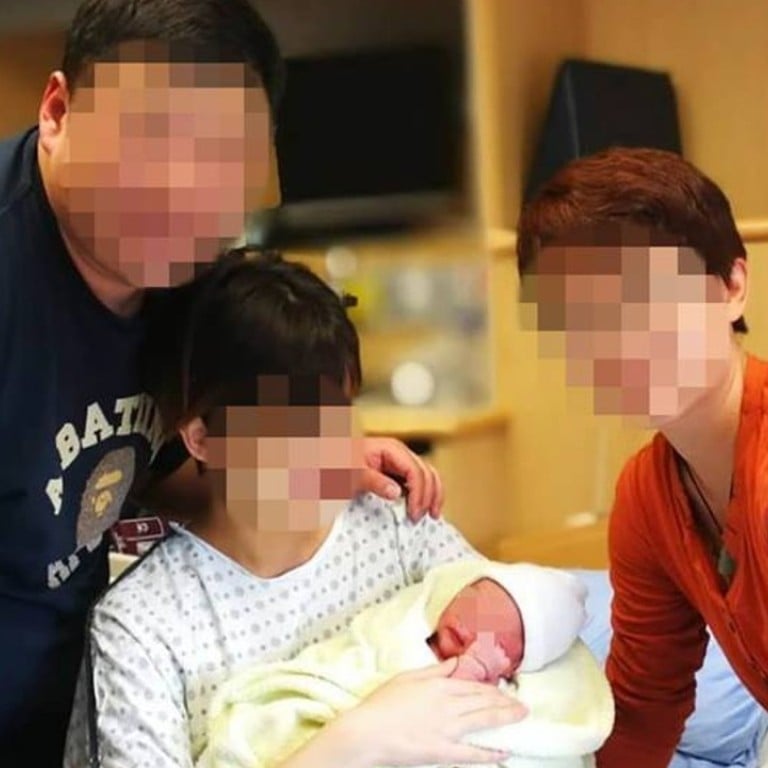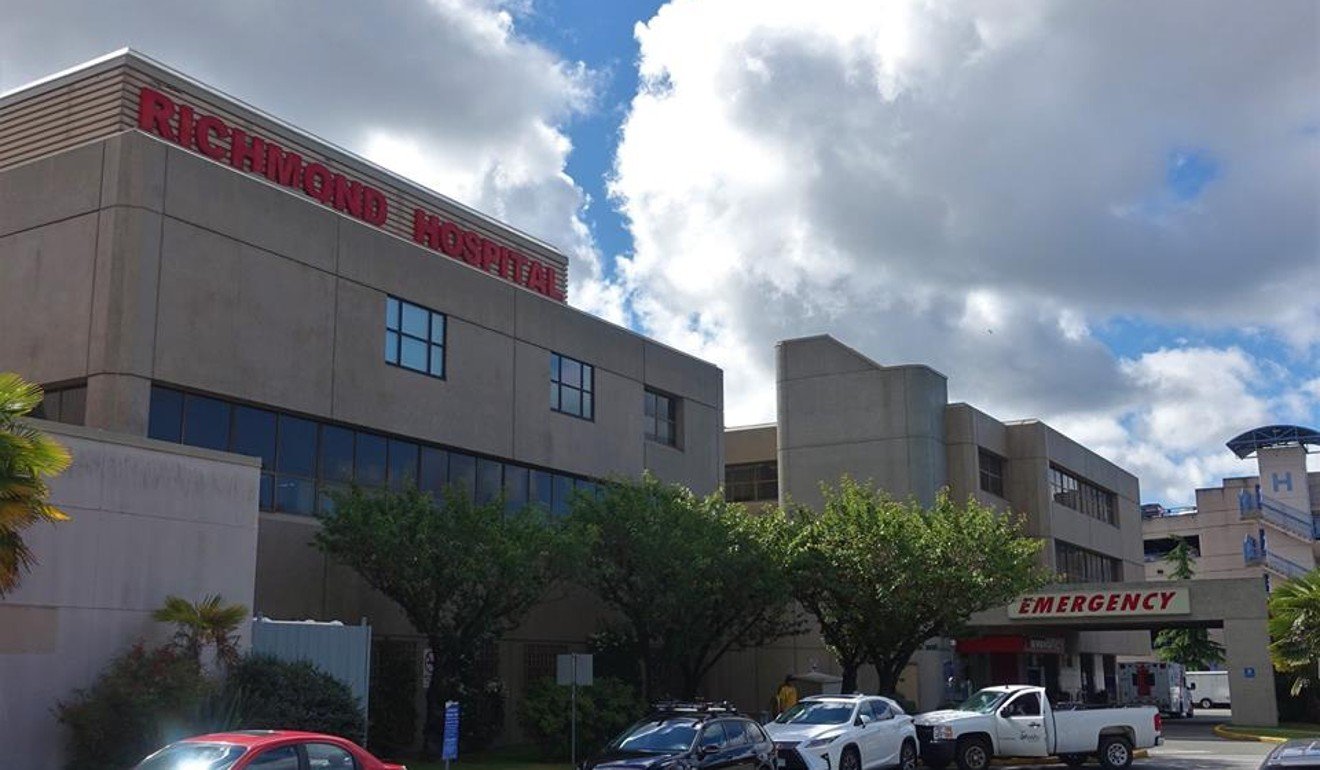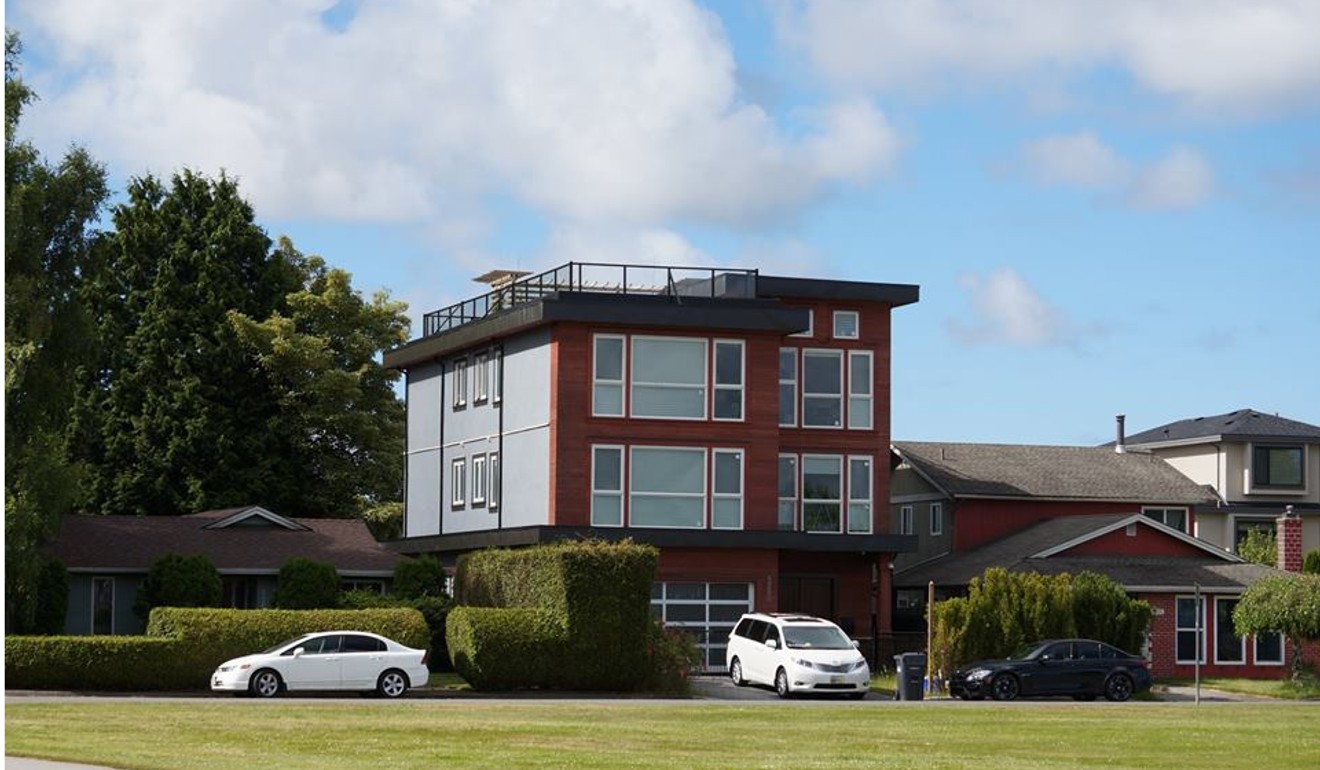
Exclusive | Foreign births soar as local births drop at epicentre of Chinese maternity tourism in Canada, new statistics show
Newborns with non-resident mothers have risen 24 per cent in the past year and 59 per cent since 2015 at Richmond Hospital in British Columbia, where they now make up almost a quarter of all births
Births to foreign mothers have soared and those to locals have fallen at a Canadian hospital that is at the epicentre of the country’s Chinese birth tourism industry, according to new data.
Newborns with non-resident mothers at Richmond Hospital rose by 23.8 per cent in the 2017/2018 financial year – compared to 2016/2017 – and made up 22.1 per cent of all newborns at the hospital outside Vancouver, figures provided to the South China Morning Post by the Vancouver Coastal Health Authority on Friday show.
And since 2015/2016, when there were 299 newborns with non-resident mothers at Richmond Hospital, their prevalence has rocketed by 58.5 per cent, to 474 last financial year.

All children born in Canada are automatically granted citizenship, regardless of the status of the parents, leading to a growing industry of birth tourism catering to pregnant Chinese women.
By contrast, newborns with Canadian-resident mothers fell 9.4 per cent, to 1,671, at Richmond Hospital last year.
VCH public affairs leader Carrie Stefanson cautioned that this did not necessarily mean local mothers were being diverted to other hospitals because of the influx of foreign women.
“We have had very few diversions in maternity,” she said. She speculated that other factors, such as high regional housing costs, could explain a move away from Richmond Hospital by local mothers.
And local births have fluctuated in recent years. For instance, from 2014/2015 to 2015/2016, the sheer number of both local and non-resident births dropped, by about 11 per cent and 13 per cent respectively. The next year, local births were up again, by 12.8 per cent.
However, the proportion of non-resident births at Richmond Hospital has marched steadily upwards since 2014/2015, the first year of the provided data, when they made up 15.4 per cent of all births.
Vancouver Coastal Health will never deny urgent and emergent care based on ability to pay or where a patient is from, but we do expect to be compensated
Vancouver Coastal Health, which runs nine hospitals in British Columbia, does not record the nationality of foreign mothers.
But it says the “overwhelming majority” of non-resident mothers list mainland China as their billing address, and the vast majority of such births occur at its hospital in Richmond, the most ethnically Chinese city in the world outside Asia.
Birth tourism is perfectly legal. But the phenomenon is not officially encouraged and has been strongly criticised, with Richmond federal MPs from both the Conservative and Liberal parties sponsoring successive petitions to parliament calling for the practice to be eliminated.
In 2016, the BC Ministry of Health’s audit branch identified 26 “baby houses” – tourism operators accommodating pregnant Chinese women intending to give birth in the province.
Stefanson said: “Vancouver Coastal Health will never deny urgent and emergent care based on ability to pay or where a patient is from, but we do expect to be compensated as we are accountable to BC residents.”
Non-residents must pay for all their costs, and make a pre-payment deposit of C$8,200 (US$6,240) for a vaginal birth and C$13,300 (US$10,114) for a caesarean.

The data provided by VCH shows the phenomenon of non-resident births grew throughout last financial year: in the first six months to September 30 they made up 19.9 per cent of all births at the hospital, while in the six months to March 31 they made up 23.8 per cent.
The phenomenon was virtually non-existent only a few years ago. From 2004-2010 there was an average of just 18 such births per year at Richmond Hospital, according to the Richmond News .
A tiny handful of non-resident mothers – five out of 378 in 2016/2017 – are Canadian citizens.
Giving birth in Canada does not change the status of foreign mothers, but their child would be eligible to sponsor parents to immigrate once attaining adulthood, if the child were living in Canada.


